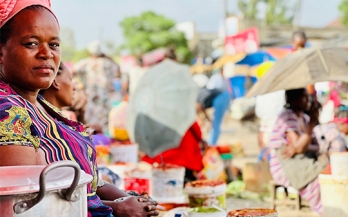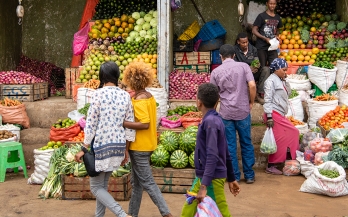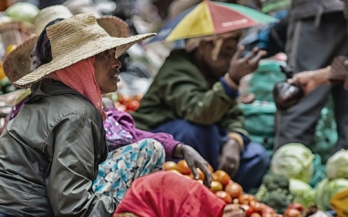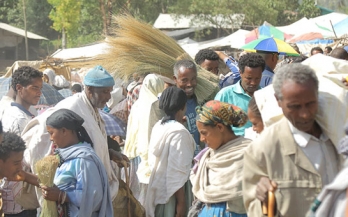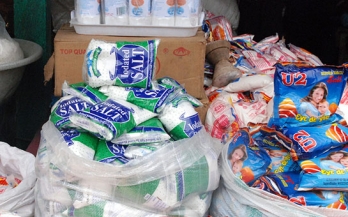Read our eleventh story in the series on The Food Crisis: What's Happening, a collection of work on the current events and the impact communities are seeing on a global scale.
The Food Crisis is affecting everyone socially, economically and nutritionally. Stella Nordhagen, Genet Gebremedhin, and Smret Hagos write about the pressure market vendors in Hawassa, Ethiopia are facing.
Read our eighth story in the series on The Food Crisis: What's Happening, a collection of work on the current events and the impact communities are seeing on a global scale. The Food Crisis is affecting everyone socially, economically and nutritionally. Aster Zewdie, Senior Policy Advisor at GAIN Ethiopia, discusses the wide reaching ripple effect the economic crisis will have on Ethiopia, affecting the most vulnerable in society, and what actions need immediate attention.
As a nation, Ethiopia joins over 125 countries that have embarked on coordinating efforts for inclusive, multistakeholder Food Systems Summit Dialogues to engage around the vision of the "people’s summit". All over the world, countries have been holding – and in some cases continue to hold – national and sub-national dialogues to surface and prioritise needs and actions.
Access to fortified foods for infants and young children can be difficult, especially for low-income families. Having worked in different civil society organisations, I see how powerful the partnerships the Global Alliance for Improved Nutrition (GAIN) has with the market-based actors. Through public-private engagements, we work to increase the access to and create the demand for nutritious food for caregivers to give to their children. Placing extra attention on affordability makes my work extra meaningful.
This is an exciting time to be in Ethiopia. A new Prime Minister, Dr. Abiy Ahmed Ali, was appointed in early April and the newly reshuffled cabinet was announced last week. We will certainly be working with GAIN and partners in Ethiopia to try to convince the new PM and his team that malnutrition sits uncomfortably in a nation that sees itself as a middle income country by 2025, a leading light in Africa, and a source of manufacturing and innovation.
Countries and donors increasingly recognise the benefits of evaluating public programs that could increase access to safe and nutritious foods for the poor. However, low- and middle-income countries face three main challenges to evaluation. Nonetheless, evaluation is feasible, as one recent study shows, and has potentially strong benefits for improving large-scale nutrition interventions.
